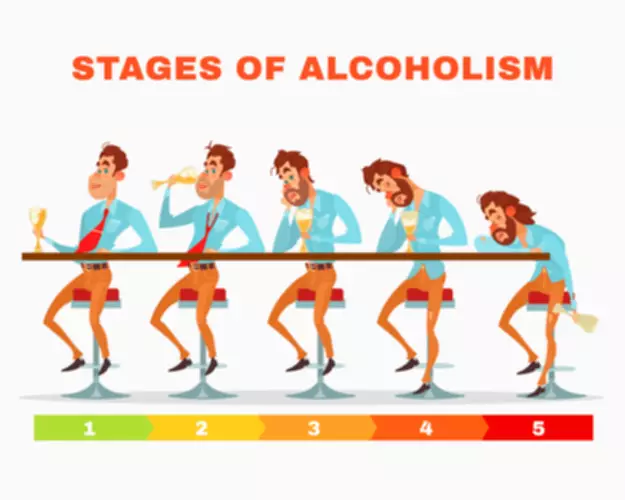
Depletion of these nutrients can lead to hangover symptoms kicking in while you’re still at the party, dramatically decreasing your drinking abilities and social skills. B vitamins are one of the first things alcohol sucks out of your body. They’re cheap, they’re electrolyte-balanced, it’s easy to keep a couple in your pocket, AND they have all the B vitamins you need. Daily drinking can have serious consequences for a person’s health, both in the short- and long-term. Many of the effects of drinking every day can be reversed through early intervention.

Increasing Alcohol Consumption Responsibly
Doing so will also give it the best chance of fighting the illness effectively. Some people may find that their alcohol tolerance becomes higher with time. This is likely due to “practice” as they continue to use alcohol regularly.

Functional Tolerance Can Result in Dependence
Such groups can offer valuable support, encouragement, advice, and information. They may try to quit independently, but the withdrawals are too unpleasant or severe. Therefore, they continue to drink to keep the withdrawals at bay, and the cycle continues.
Site footer content
The chronic drinker may be compelled to even increase their alcohol intake due to the lack of physical impact. This kind of tolerance develops at different rates for alcohol effects. For this reason, a person who has sound mental functions and can have coordinated conversations may show impairment when it comes to activities that involve eye-hand coordination such as driving. At this point, driving may be a death sentence even without the awareness of the drinker. Certain factors may increase your risk of developing an alcohol problem. Binge drinking, social pressures, family history, mental health issues, and excess alcohol use can all increase your risk of developing an alcohol use disorder.

Can You Build Up a Tolerance to Alcohol?
- If you have alcohol intolerance but still find yourself drinking excessively, despite the pain and discomfort, talk to your healthcare provider.
- Drinking alcohol on a regular basis can cause changes in how your body reacts to alcohol and effects of the substance, including signs of intoxication.
- Therefore, it is likely that your family members are at risk for the same problem.
- But when the semester begins and you go to a party where there is no beer, your body will respond to the change.
- They’ll spike your blood-sugar levels, and then you’ll crash, again leading to tiredness and/or headaches long before the party is over.
- The reason is yet uncertain; however, there are several types of tolerance with their own mechanisms.
Your body uses an enzyme called aldehyde dehydrogenase, or ALDH2, to break down acetaldehyde. However, in some people, ALDH2 does not work correctly, resulting in alcohol intolerance. This process is simple to understand but hard to follow, yet it works miracles in reducing alcohol tolerance.
The individual may find themselves feeling no sign of intoxication; this may lead to dependency and alcohol addiction. As tolerance increases, the brain’s chemistry equally changes, transforming into pathological cravings for the effects of alcohol. Other changes may include the risk of developing withdrawal symptoms. Over time, tolerance for alcohol compels some people to use higher and higher amounts, resulting in a further inclination towards alcoholism. Eventually, such high quantities damage the liver, impeding its ability to produce the enzymes needed to break down alcohol.
JD Vance’s Drunken College Photo Met With Shrugs as the Facebook Generation Runs for Office
The reason is yet uncertain; however, there are several types of tolerance with their own mechanisms. A number of students report deliberately inducing alcohol tolerance, probably directly increasing the risk for alcohol poisoning and other acute harms and/or dependence. This phenomenon might additionally be applicable to other populations, and deserves further study and attention as a potential personal and public health risk. Prevention efforts might aim to reduce the perceived importance of heavy-drinking abilities. This is a potential health hazard that has not been documented empirically. Thus, we initiated a study of tolerance ‘training’ and its association to risky and heavy drinking.

An allergy to alcohol has a very different cause from alcohol intolerance. Someone with an alcohol allergy has an allergic reaction when exposed to alcohol or to a component of alcohol. Often, it is not actually build up alcohol tolerance an allergy to alcohol itself but to a component of the alcohol, like grapes or hops. The symptoms are caused because the body’s immune system becomes overactive and attacks something found in the alcohol.
You’re also going to be drunker than you think you are and are more likely to do something stupid. Additionally, caffeine is a diuretic, like alcohol, so it will further dehydrate you and increase your chances of getting the spins faster. We’re not saying we never do this, we’re just saying that you should be careful when you do.
- Avoiding alcohol will allow you to live an active, enjoyable life without unpleasant symptoms.
- Alcohol intolerance doesn’t mean you become drunk faster or after drinking less alcohol.
Several studies have shown that sons of alcoholics were less impaired during drinking bouts compared to sons of non-alcoholics. Some writers, poets, artists, or people with different talents feel the need for booze to get them in the mood to be creative, which can result in chronic alcoholism. Humans may develop a tolerance for alcohol while practicing a task and drinking at the same time. In some cases, sudden onset alcohol intolerance is triggered by the presence of a new disease. Table 1 also shows that ‘trainers’ are far more at risk than their counterparts for heavy and risky drinking.